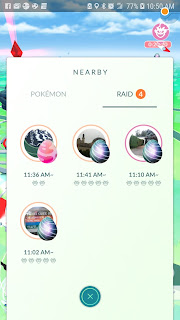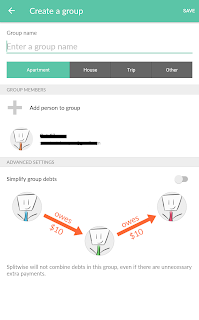Context Collapse- Facebook for Academics?
We've talked about context collapse before in EME6414, but after reading this week's articles, I thought I'd share my own thoughts about using Facebook for class.
Dr. Dennen's article "Identity, context collapse, and Facebook use in higher education: Putting presence and privacy at odds" included some results that surprised me. I did not expect so many students to be comfortable with using Facebook for school purposes.
We are not using Facebook in EME6414 and I appreciate that, because I know how tempting it can be to "Facebook stalk" classmates, professors, and professional colleagues. I have no problem becoming Facebook friends with classmates that I actually do become friends with, and even have a couple former professors on mine, but not until after I had taken their courses and/or graduated.
A lot of respondents on the survey said that they have used Facebook to vent about courses, post about procrastination, and share what they're currently doing (which isn't homework). It's easy to get caught in the act if a professor is a Facebook friend. Why not just avoid the awkwardness by keeping Facebook separate and private?
I try to avoid context collapse as much as possible. I have assigned groups to my Facebook friends based on hobbies, locations, and professional status. I'm usually very careful about what I post anyway, so the groups are mainly to avoid clutter. For example, people not living in my city probably don't care about if a certain highway is closed. And sure, I can 'friends lock' every post I make, but you never know who can still get access to your locked posts anyway.
If I was required to join a Facebook group for class, things could become very awkward if classmates start commenting on old public photos, send me messages asking about my public posts, or try to friend request me when I don't want to accept. I tend to keep a pretty strict rule for those I add to my Facebook.....if I haven't had a legitimate substantive conversation with you, I'm not adding you. This is also probably why I have about 210 pending friend requests that I've pretty much just ignored. I know who nearly everyone is, but don't know them.
This is the same reason why I chose to create a new account on Instagram. My Instagram is linked to Facebook, and many of my Instagram followers are my Facebook friends. I didn't want to have to change my settings from private to public and then let everyone see everything. Creating a new one was just easier.
When worlds collide, things can get awkward quickly. I'm glad Dr. Dennen is sensitive to that. There are so many alternatives that can achieve the same collaborative effect (if not moreso), that Facebook doesn't need to be a requirement in education. It's our job as educators to be respectful of that and find quality alternatives.
Dr. Dennen's article "Identity, context collapse, and Facebook use in higher education: Putting presence and privacy at odds" included some results that surprised me. I did not expect so many students to be comfortable with using Facebook for school purposes.
We are not using Facebook in EME6414 and I appreciate that, because I know how tempting it can be to "Facebook stalk" classmates, professors, and professional colleagues. I have no problem becoming Facebook friends with classmates that I actually do become friends with, and even have a couple former professors on mine, but not until after I had taken their courses and/or graduated.
A lot of respondents on the survey said that they have used Facebook to vent about courses, post about procrastination, and share what they're currently doing (which isn't homework). It's easy to get caught in the act if a professor is a Facebook friend. Why not just avoid the awkwardness by keeping Facebook separate and private?
I try to avoid context collapse as much as possible. I have assigned groups to my Facebook friends based on hobbies, locations, and professional status. I'm usually very careful about what I post anyway, so the groups are mainly to avoid clutter. For example, people not living in my city probably don't care about if a certain highway is closed. And sure, I can 'friends lock' every post I make, but you never know who can still get access to your locked posts anyway.
If I was required to join a Facebook group for class, things could become very awkward if classmates start commenting on old public photos, send me messages asking about my public posts, or try to friend request me when I don't want to accept. I tend to keep a pretty strict rule for those I add to my Facebook.....if I haven't had a legitimate substantive conversation with you, I'm not adding you. This is also probably why I have about 210 pending friend requests that I've pretty much just ignored. I know who nearly everyone is, but don't know them.
This is the same reason why I chose to create a new account on Instagram. My Instagram is linked to Facebook, and many of my Instagram followers are my Facebook friends. I didn't want to have to change my settings from private to public and then let everyone see everything. Creating a new one was just easier.
When worlds collide, things can get awkward quickly. I'm glad Dr. Dennen is sensitive to that. There are so many alternatives that can achieve the same collaborative effect (if not moreso), that Facebook doesn't need to be a requirement in education. It's our job as educators to be respectful of that and find quality alternatives.


Comments
Post a Comment